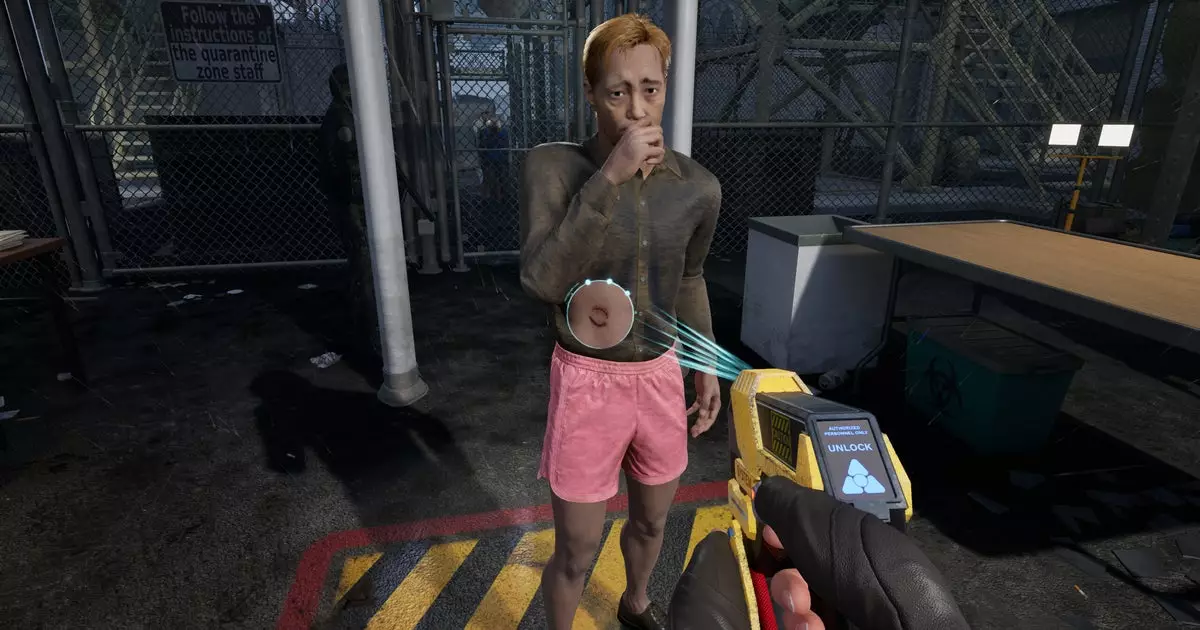At first glance, Quarantine Zone: The Last Check presents itself as a high-stakes simulation set amidst the chaos of a zombie apocalypse. It combines the tense decision-making of *Papers Please* with the strategic depth of base-building and wave defense. Yet, beneath this surface lies an unsettling opportunity to interrogate how society manages fear, suspicion, and moral boundaries. It is not merely about sorting the infected from the healthy but challenges players to confront the weight of judgment in a climate of uncertainty. The game’s mechanics—using UV flashlights, thermometers, and document inspection—mirror real-life border security, but they also serve as a metaphor for our collective struggle with bias and the fine line between safety and cruelty.
This portrayal compels us to ask: How does institutional authority influence our perception of others? Are we inadvertently endorsing a moral binary—safe versus dangerous—that oversimplifies human complexity? The game’s subtle hints of resource scarcity and conflict mirror real-world dilemmas faced by border customs and health officials, especially during crises. It exaggerates the scenario but also offers a mirror, inviting players to reflect on how fear-blinded policies can lead to moral compromises—whether turning away refugees or escalating violence.
The Power of Ambiguity: Beyond Black-and-White Morality
What sets Quarantine Zone apart is its nuanced approach to character inspection. The game embraces ambiguity—distinguishing between a groaning woman with indigestion and a threatening zombie isn’t straightforward. This mechanic simulates the chaos and uncertainty faced by those on the front lines, whose decisions sometimes have dire consequences. The game’s design suggests that morality isn’t a clear-cut system but a web of contextual judgments influenced by scarce resources, personal biases, and life-or-death stakes.
This prompts a critical view: Are we becoming desensitized by these simulated choices? Or are such narratives a vital reminder of the moral complexity in real-life crisis management? The developers seem to intentionally avoid giving simple answers, instead highlighting that even well-intentioned actions can have unintended consequences. This ambiguity resonates with current debates around immigration, public health, and national security—where fears often overshadow empathy.
Survival Strategy or Ethical Dilemma? A Deep Dive into Gameplay Layers
The inclusion of base-building and wave defense mechanics adds another layer of complexity—players are not passive observers, but active strategists laboring to maintain order amidst chaos. The necessity to juggle limited supplies, verify documents, and decide the fate of individuals underscores the brutal uncertainty that defines survival in extreme circumstances. These mechanics serve as a microcosm for larger societal challenges: How do nations prioritize resources? When do security concerns override humanitarian considerations?
Furthermore, the game’s detailed inspection tools—UV flashlights, thermometers, manual scanners—are not just gameplay devices but symbols of transparency and vigilance. They reflect the human desire for certainty amid chaos, yet also serve as a reminder of how technology can both aid and distort moral judgment. Are we sure that the tools of inspection are always fair? Or do our reliance on them mask deeper biases?
Additionally, the dynamic threats—refugees who may be sick, healthy, or carriers of deadly pathogens—embody the unpredictable nature of crises. It questions whether our instinct is to shield ourselves at any cost, or if a more compassionate approach is possible when confronting the unknown. The game’s challenge isn’t solely about survival but about ethical resilience—can you balance safety with humanity?
Beyond the Apocalyptic: A Reflection on Human Nature and Society
Ultimately, Quarantine Zone is more than a game; it’s a cautionary tale that critiques the very systems we rely upon during emergencies. Its diplomatic ambiguity encourages players to reflect on how political and social dynamics influence personal choices. Are the monsters truly the zombies, or are they the prejudices, fears, and institutional failures embedded in society?
By immersing players in a tense environment where moral choices are rarely black-and-white, the game elevates the conversation around authority, compassion, and survival. It dares us to question whether our instinct to quarantine, scrutinize, or eliminate is justified, or if it simply reveals our collective discomfort with the unknown. Through its mechanics and narrative depth, Quarantine Zone challenges us to consider whether genuine security can ever be achieved without sacrificing our humanity—an insight that remains startlingly relevant beyond the realm of fiction.

